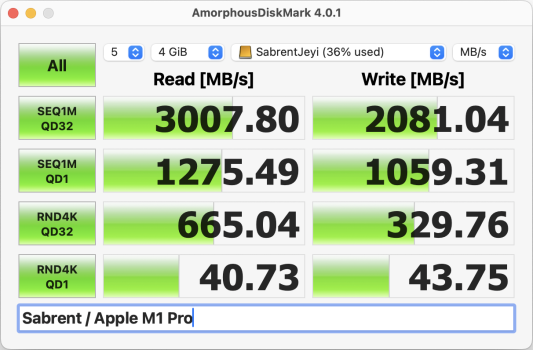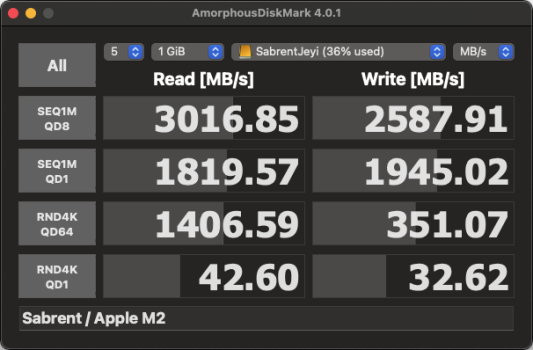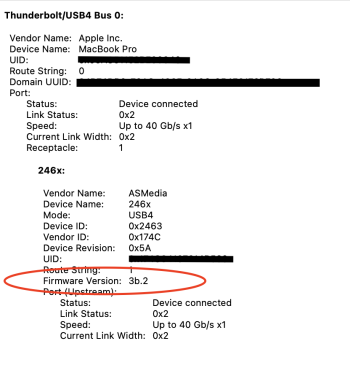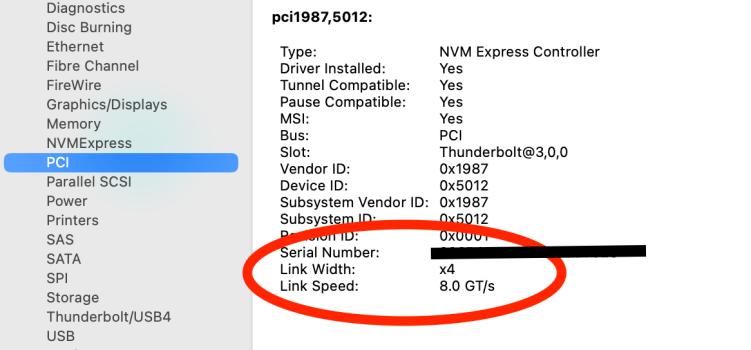Link:
https://www.jeyi.com/pages/downloads?spm=..page_7954303.header_1.1
The firmware isn't listed by that name on the Jeyi website. "3b.2" is what I now see for the JEYI firmware version in the System Information -> Thunderbolt/USB4 panel. See attached screenshots, including the second one which now shows the Jeyi with as PCI NVME controller with a x4 link width (used to report as a x2 with the stock "35.25" firmware). As each lane has a theoretical max of roughly 985 MB/s (for PCIe 3.0 @ 8 GT/s, twice that for 4.0), my results are much better with the Jeyi having four lanes. (At least that's my current working theory of what's going on here.)
I installed the most recent (2024 Jan 01?) and downloaded it from the page linked at the top of post, which I think you [mogens] screenshot a few posts here ago (Feb 9). I did have extract the zip once, and then again to get to the tool, and then move the bin inside the extracted tool folder to flash it from a PC (not to mention using a USB C 3 cable instead of a 4).
For all I know this firmware may even be a beta from ASMedia (the "b" could stand for beta?). But it is working for me... at least with one of my SSDs...
Anyway I do think that these USB4/TB3/4 enclosures are very finicky right now. It might be the case that an older firmware update, like the October? 1005 works better or with your vs my macs, ssds, etc.
Thanks to both mogens and Earl Urley. Yours were among some of the posts here that were invaluable in tracking down what my problem and apparent solution might be (x2 lane width and firmware update). I'm just hoping this solution continues to work.
Also, in some more real world cli tools testing than Amorphous or Black Magic, I tried a "time dd if=/dev/zero of=/Volumes/YourVolumeNameHere/test1.img bs=1G count=100" 100GB write test and achieved a little over 2000 MB/s and an elapsed time of about 51s with the new firmware, which was about a 50% improvement for my use case over stock (and that was measured on the slower m1 pro).
I also tried a rsync -Pa transfer of a 70 GB file that measured at only around 350 MB/s, but rsync does have a lot of overhead...
Best of luck tweaking your systems.









